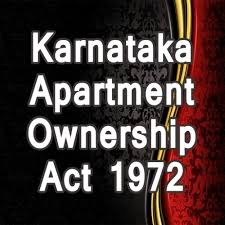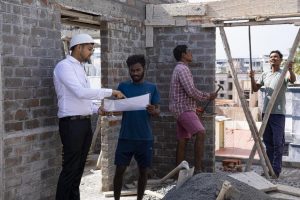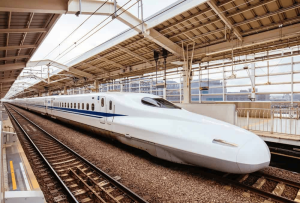The real estate ecosystem in Karnataka has undergone massive legal and regulatory transformations over the past few years. The Karnataka Apartment Ownership Act, 1972, originally formulated to bring order to the management and transfer of apartment ownership, has faced frequent amendments, practical challenges, and evolving case law. Most recently, the Karnataka Apartment Ownership and Management Act of 2024 has further reshaped the landscape, particularly in terms of registration mandates, maintenance charges, and rights of apartment owners and associations.
This blog provides an in-depth analysis of the Karnataka Apartment Ownership Act case laws as they stand in 2025. It covers landmark judgments, the relevance of maintenance charges, the apartment act’s evolution, and comparisons with broader tenancy laws in India. Let’s dive deep into the regulatory maze and legal precedents that every apartment owner, builder, or legal professional in Karnataka should be aware of.
Also Read:- E Swathu Karnataka 2025: Download Form 9, Form 11 and Form 3
What is the Karnataka Apartment Ownership Act, 1972?
The Karnataka Apartment Act 1972 was established to provide legal clarity on ownership rights, transfer, and responsibilities of apartment owners in the state. The law allowed individual apartment units to be treated as heritable and transferable property, with ownership rights clearly defined.
Key features of the 1972 Act:
- Defined apartment ownership rights under a registered declaration.
- Made it mandatory for property registration with floor-wise ownership.
- Introduced the concept of Common Areas and Facilities (CAF).
- Suggested formation of apartment owners’ associations.
How Has the Act Evolved into the Karnataka Apartment Ownership and Management Act of 2024?
Recognizing loopholes in the original 1972 legislation, Karnataka introduced the Karnataka Apartment Ownership and Management Act of 2024. This new act aims to:
- Ensure greater transparency in apartment management.
- Mandate registration of Apartment Owners Associations with the Real Estate Regulatory Authority (RERA).
- Clearly define maintenance responsibilities and financial liabilities.
- Strengthen dispute resolution mechanisms and governance structures.
This new framework significantly influences how apartment associations operate and how disputes are addressed under judicial scrutiny.
Also Read:- How to Check RERA Number Online in Karnataka?
What Are the Key Karnataka Apartment Ownership Act Case Laws in 2025?

Understanding the Act is incomplete without reviewing case laws that interpret its clauses. In 2025, multiple important judgments have been passed by the Karnataka High Court and other forums:
-
Dispute over Unregistered Associations
A 2025 case highlighted that any association not registered under the 2024 Act cannot enforce recovery of maintenance charges or take legal action on behalf of members. The ruling emphasized:
- Is it mandatory to register the apartment owners’ association in Karnataka? Yes, if the association is to function legally and enforce obligations.
-
Builder’s Liability for Common Area Maintenance
In another landmark case, the Karnataka High Court ruled that until the handover of the association, the builder is responsible for maintenance charges and upkeep. The court clarified:
- Builders cannot charge maintenance arbitrarily without actual service delivery.
- Owners have the right to seek an audit of the maintenance account.
-
Unauthorised Construction on Common Areas
In a housing society in Bengaluru, residents filed a case against the builder for unauthorized construction in designated common areas. The court ruled:
- Common areas are collectively owned and cannot be altered without unanimous consent.
- Such construction violates the Karnataka Apartment Ownership Act Rules.
-
Violation of By-laws by Residents
In a dispute involving a resident refusing to pay for common facilities like lifts, the court ruled that:
- All owners are equally liable for Karnataka apartment ownership act maintenance charges, even if they do not use the facilities.
These Karnataka apartment ownership act case laws clarify that legal compliance is not optional and that both associations and owners must strictly follow the regulatory structure.
Also Read:- Kerala State Housing Board 2025: Loan Scheme | Contact Number
What is the Role of Maintenance Charges Under the Act?

The issue of Karnataka apartment ownership act maintenance charges is one of the most litigated areas. The act and subsequent rules state:
- Maintenance expenses must be shared proportionally based on built-up area.
- Associations must maintain transparent accounts, auditable by members.
- Builders cannot charge these fees indefinitely or arbitrarily post-possession.
The 2024 amendment further mandates associations to submit annual audited financial statements to RERA.
What is Tenancy Act in India and How Does it Compare?

The Tenancy Act in India varies from state to state and primarily governs landlord-tenant relationships. It differs from apartment ownership laws, which focus on co-ownership and collective management of apartments. Key differences:
- Tenancy Act governs lease/rent agreements, eviction rules, and tenant rights.
- Apartment Act Karnataka focuses on ownership, registration, and community governance.
Confusion between the two often leads to legal errors, especially in case of disputes between absentee landlords and tenant-occupied units.
Also Read:- Real Estate Tokenization: Benefits, Risks, and How It Works
Are Apartment Owners Associations Mandatory Under the Law?
A common query is: Is it mandatory to register the apartment owners’ association in Karnataka?
As per the Karnataka Apartment Ownership and Management Act of 2024:
- Yes, it is now mandatory.
- Unregistered associations cannot represent residents legally.
- Builders must initiate the association within 3 months of the sale of 60% ofthe apartments.
The act also prescribes:
- Bye-law structure
- Voting rights
- Quorum for meetings
- Penalties for non-compliance
How are the Karnataka Apartment Ownership Act Rules Enforced?
The Karnataka Apartment Ownership Act Rules lay down the procedures for:
- Filing declarations of apartment ownership.
- Format for maintenance collection.
- Association registration procedures.
- Use and abuse of common areas.
Failure to comply can result in penalties, de-recognition of associations, and cancellation of builder licenses.
Are There Challenges in Implementation?

Yes, several challenges persist:
- Lack of awareness among owners and associations.
- Builders are delaying handovers or hiding defects.
- Difficulty in getting a consensus among large communities.
- Disputes over parking, usage of rooftops, and leasing restrictions.
These issues continue to appear in the Karnataka Apartment Ownership Act case laws across forums in 2025.
Conclusion
The Karnataka Apartment Ownership Act, along with its 2024 amendment, is a robust legal framework designed to protect the interests of apartment owners, ensure transparent governance, and regulate the conduct of developers and associations. The evolving case laws in 2025 reinforce the importance of legal compliance, collective responsibility, and awareness of one’s rights.
For homebuyers and residents in Karnataka, understanding these laws is not optional—it’s essential. From maintenance charges to association registration, every aspect influences your quality of living and financial accountability.
At Housiey, we ensure our readers are not just informed but empowered. Whether you are an apartment owner, a resident, or planning a purchase, always stay one step ahead by knowing your legal ground.
Curious about property taxes outside Karnataka?
Read our blog on Ghaziabad Property Tax to understand how taxation works in one of India’s fastest-growing urban hubs.






